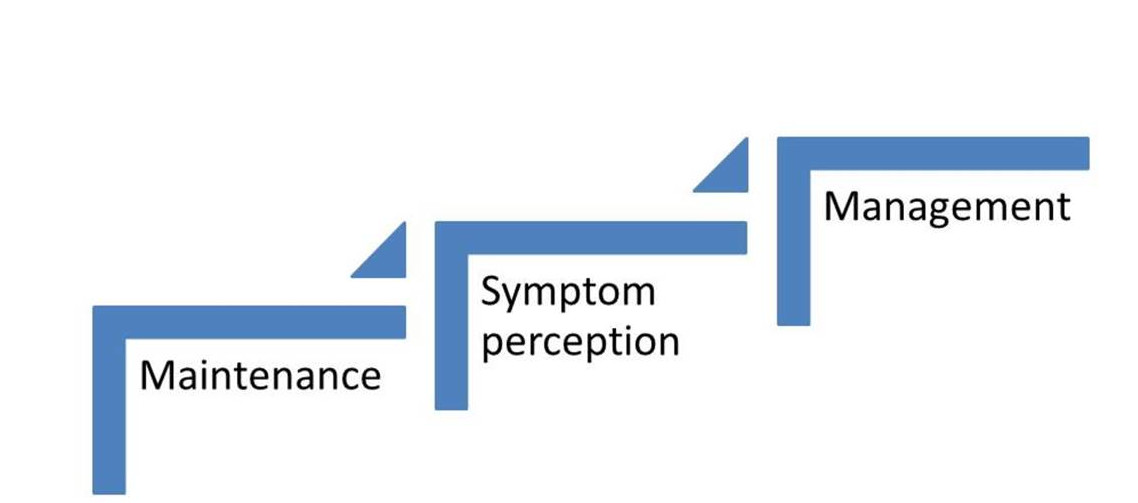Self Care of Heart Failure Index - Patient Version

The Heart Failure Self-Care Process as described in Riegel B, Dickson VV, and Faulkner KM. The situation-specific theory of heart failure self-care: Revised and updated. Journal of Cardiovascular Nursing, 2016.
Primary Contact:
Barbara Riegel, PhD, RN, FAAN, FAHA
Professor
Penn Nursing
University of Pennsylvania
418 Curie Boulevard
Philadelphia, PA 19104-4217
Email: briegel@nursing.upenn.edu
In our newly updated theory (the Situation specific theory of heart failure self-care, Riegel, Dickson & Faulker, 2016), self-care is defined as a naturalistic decision-making process that influences actions that maintain physiologic stability, facilitate the perception of symptoms, and direct the management of those symptoms. Specifically, self-care entails 3 separate but linked concepts that reflect processes that often are mastered in sequence. The first self-care process is maintenance, which captures treatment adherence and healthy behaviors (e.g., taking medications, exercising, and following a salt restricted diet). The second self-care process, symptom perception, involves both the detection of physical sensations and the interpretation of meaning. Specifically, symptom perception involves body listening, monitoring signs, as well as recognition, interpretation, and labeling of symptoms. Individual symptoms and the interactions between symptoms influence the meaning attributed to the symptom experience. The third self-care process is management, or the response to symptoms when they occur (Figure). All 3 processes involve both autonomous and consultative elements, discussed in our article (Riegel B, Dickson VV, and Faulkner KM. The situation-specific theory of heart failure self-care: Revised and updated. Journal of Cardiovascular Nursing, 2016).
Version 7.2
Version 6.2






























